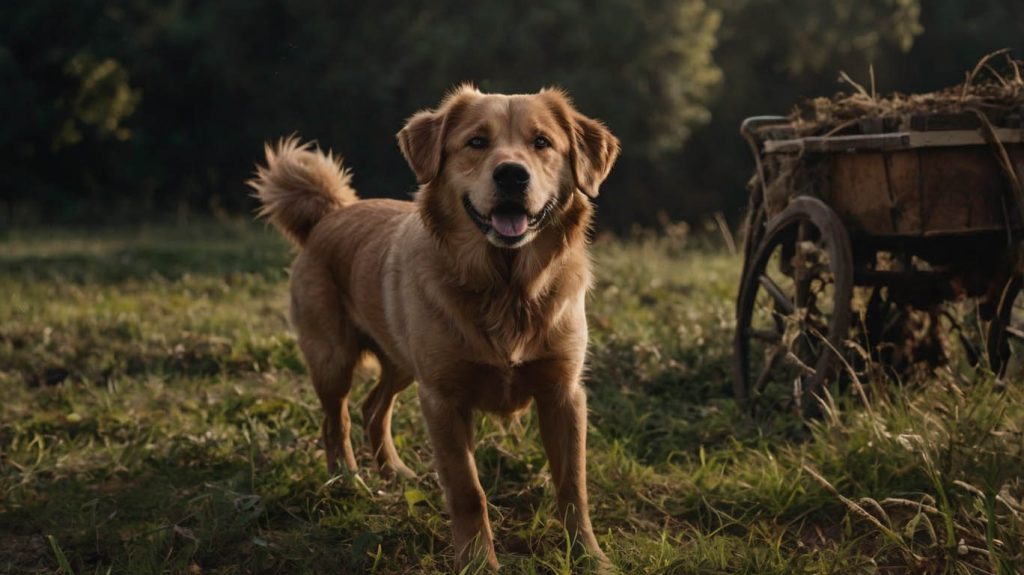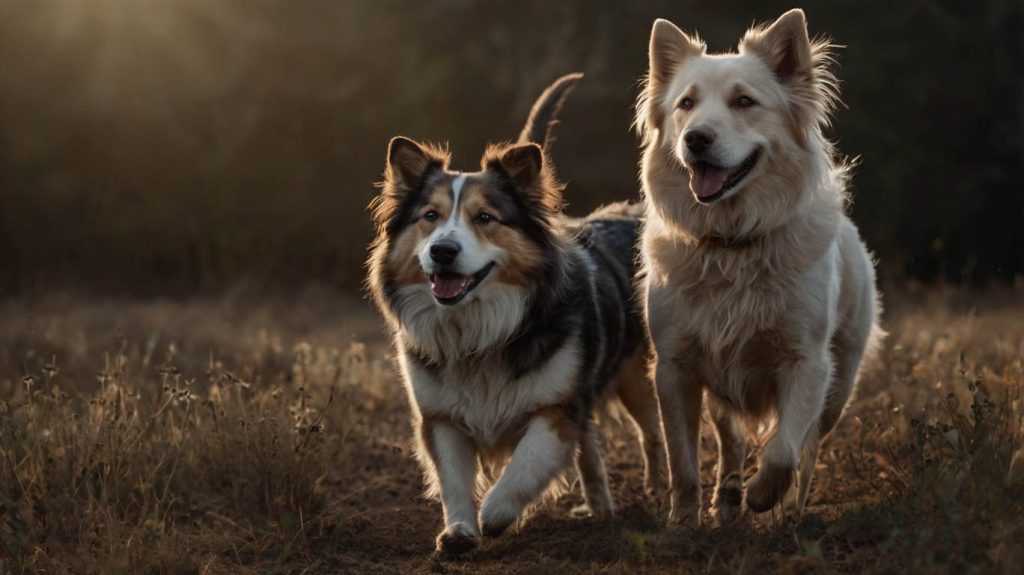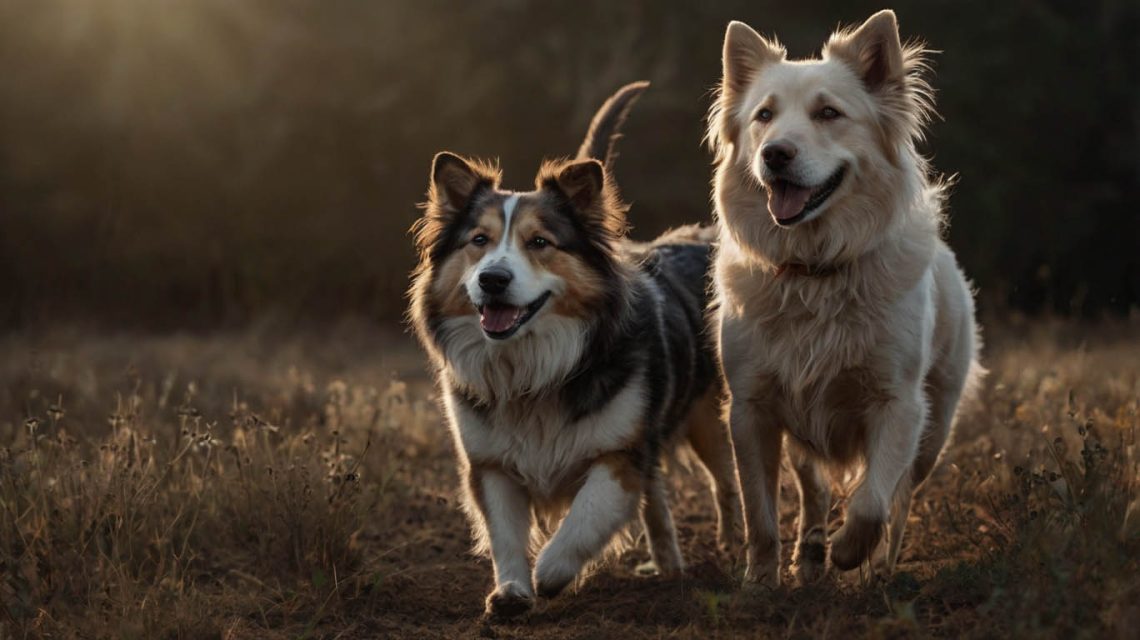Long Life Dogs: The Ultimate Guide to Breeds with Great Longevity
When Mark brought home a tiny ball of fluff he named “Scamp,” a spirited terrier mix from the local shelter, he knew he was committing to years of love and companionship. As Scamp grew from a mischievous puppy into a loyal, steadfast friend, Mark found himself cherishing every single moment. This deep bond led him to a hopeful, and slightly wistful, search online for “long life dogs.” He wanted to know if he had, by chance, chosen a companion who might be with him for many years to come, and what he could do to help make that happen.
Mark’s search is one that every devoted dog owner understands completely. The single greatest heartbreak of loving a dog is their all-too-short lifespan. It’s a cruel trade-off for their unconditional love. While we can’t stop time, we can make informed choices and provide the best care to maximize the precious years we have together.
Consequently, this definitive guide is designed to be your trusted resource. We will explore the factors that contribute to a long canine life, provide a detailed list of famously long life dogs, and offer practical tips to help your own dog live a healthier, longer life. Therefore, you can move from a state of hopeful wishing to one of empowered, proactive care.
What Are the Secrets to Finding Long Life Dogs?
Before we get to the list of breeds, it’s crucial to understand the key factors that influence a dog’s lifespan. It’s not just random chance.

Size: The Biggest Single Factor for Long Life Dogs
This is the most significant and well-documented contributor to canine longevity. In general, smaller dog breeds live significantly longer than larger dog breeds. The exact reasons are still being studied, but it’s believed that the very rapid growth rate of large breeds puts more stress on their bodies and may lead to an earlier onset of age-related diseases like cancer and orthopedic issues.
Genetics and Responsible Breeding
A dog’s genetic blueprint plays a huge role. Breeds that have been carefully developed by responsible breeders who screen for and avoid hereditary diseases tend to be healthier and live longer. Conversely, breeds plagued by genetic predispositions to conditions like heart disease or certain cancers will naturally have a shorter average lifespan. This is why a well-bred dog often falls into the category of long life dogs.
Your Influence: Diet, Exercise, and Vet Care
A dog’s breed is just their genetic potential. The care you provide is what truly shapes their life story. A healthy, balanced diet, consistent and appropriate exercise, maintaining a lean body weight, and regular preventative veterinary care are absolutely essential for a long and vibrant life.
The Top 10 List: Our Picks for Long Life Dogs
Now, let’s explore the breeds that are renowned for their impressive longevity. As you’ll see, the “small dog” rule holds strong.
1. Chihuahua: The Tiny Titan of Longevity
- Average Lifespan: 14-18 years, with many living well into their 20s.
- Why they’re great: As one of the world’s smallest dog breeds, they are the poster child for the “small dog, long life” rule. They are a relatively hardy breed, though they do require regular dental care and monitoring for heart conditions. Their devoted, “one-person” nature makes them a top choice for those seeking a companion for many years. They are the quintessential long life dogs.
- Temperament: Charming, graceful, sassy.
2. Australian Cattle Dog: The Exceptionally Hardy Herder
- Average Lifespan: 12-16 years.
- Why they’re great: The Australian Cattle Dog is a remarkable exception to the size rule. The current Guinness World Record holder for the oldest dog ever was an ACD named Bluey, who lived to be an incredible 29 years old! They are a tough, resilient, and generally healthy working breed with a low incidence of genetic disease.
- Temperament: Alert, curious, loyal.
3. Jack Russell Terrier (and Parson Russell Terrier)
- Average Lifespan: 13-16 years.
- Why they’re great: These terriers are sturdy, energetic little dynamos that were bred for work, not for looks. This focus on function has resulted in a robust and healthy breed with a tenacious spirit that often keeps them active and fit well into their senior years.
- Temperament: Intelligent, fearless, energetic.
4. Shih Tzu: The Long-Lived Royal Companion
- Average Lifespan: 10-16 years.
- Why they’re great: The Shih Tzu is a sturdy and ancient companion dog. While their brachycephalic (flat-faced) nature requires some management, they are generally a healthy breed. Their small size and role as an indoor companion contribute to their impressive lifespan, making them a very popular choice for owners looking for long life dogs.
- Temperament: Affectionate, outgoing, playful.
5. Toy Poodle: The Intelligent and Elegant Long-Lifer
- Average Lifespan: 10-18 years.
- Why they’re great: Poodles of all sizes are known for their sharp intelligence and good health. The Toy Poodle, as the smallest of the poodle varieties, benefits most from the size-longevity link. They are also less prone to many of the orthopedic issues that can affect larger breeds.
- Temperament: Proud, active, very smart.
6. Lhasa Apso: The Ancient and Hardy Watchdog
- Average Lifespan: 12-15 years, with many living longer.
- Why they’re great: The Lhasa Apso is an ancient breed from the monasteries of Tibet, where they served as hardy indoor sentinels. They are known for being tough, healthy little dogs with a strong constitution and a long history.
- Temperament: Confident, smart, comical.
7. Maltese: The Tiny and Gentle Friend for Years
- Average Lifespan: 12-15 years.
- Why they’re great: The Maltese is a classic toy breed known for its gentle nature and beautiful, low-shedding white coat. Their small size and relatively few breed-specific health problems contribute to their status as one of the great long life dogs.
- Temperament: Gentle, playful, charming.
8. Australian Shepherd: The Active and Vibrant Herder
- Average Lifespan: 12-15 years.
- Why they’re great: Like their Cattle Dog cousins, well-bred Australian Shepherds are hardy, intelligent, and active working dogs. Their high drive for activity often means they maintain a lean, healthy body condition throughout their lives, which is a major factor in their longevity.
- Temperament: Smart, work-oriented, exuberant.
9. Shiba Inu: The Spirited and Ancient Companion
- Average Lifespan: 13-16 years.
- Why they’re great: The Shiba Inu is an ancient Japanese breed known for its cat-like independence, cleanliness, and generally robust health. They are a sturdy and resilient breed that is not plagued by many of the genetic issues common in other dogs.
- Temperament: Alert, active, attentive.
10. Dachshund: The Long-Bodied, Long-Lived Hound
- Average Lifespan: 12-16 years.
- Why they’re great: Dachshunds are small, sturdy hounds with big, brave personalities. While they are prone to spinal problems (IVDD), if their weight is carefully managed to protect their back, they are generally a very healthy breed that enjoys a long and happy life.

How You Can Help Your Dog Join the “Long Life Dogs” Club
Choosing a long-lived breed is a great start, but your day-to-day care is what truly makes the difference.
- Maintain a Lean Body Weight: This is the single most important thing you can do for your dog’s health and longevity. Obesity is linked to a host of diseases and can shorten a dog’s life by up to two years.
- Provide High-Quality Nutrition: Feed a balanced, high-quality diet appropriate for your dog’s age, size, and activity level.
- Commit to Regular Veterinary Care: Annual (or semi-annual for seniors) wellness exams are crucial for early detection of disease. Consistent dental care is also vital, as poor oral health can lead to systemic health problems.
- Daily Exercise and Mental Enrichment: Keeping your dog’s body and mind active is essential for their physical and mental well-being.
A Case Study Resolved: How Mark Gave Scamp the Best Chance
Let’s return to Mark and his terrier mix, Scamp. His research confirmed that terrier mixes, especially smaller ones, are often very hardy and fall into the category of long life dogs. This knowledge didn’t make him complacent; it made him more dedicated. He committed to keeping Scamp at a lean, healthy weight, continued their daily walks and games of fetch, and never missed a yearly vet check-up. He knew he couldn’t control genetics, but he was doing everything in his power to ensure their journey together would be as long, healthy, and joyful as possible.
The Final Verdict: A Combination of Good Genes and Great Care
Choosing one of the long life dogs can be a wonderful way to tip the odds in your favor for many years of loving companionship. By selecting a smaller, healthier breed and committing to a lifetime of excellent, proactive care, you are making a profound investment in the time you will share with your best friend.
Your dog’s health is a partnership between their genetics and your loving care. What are your favorite long-lived breeds? Share your stories and experiences in the comments below!


